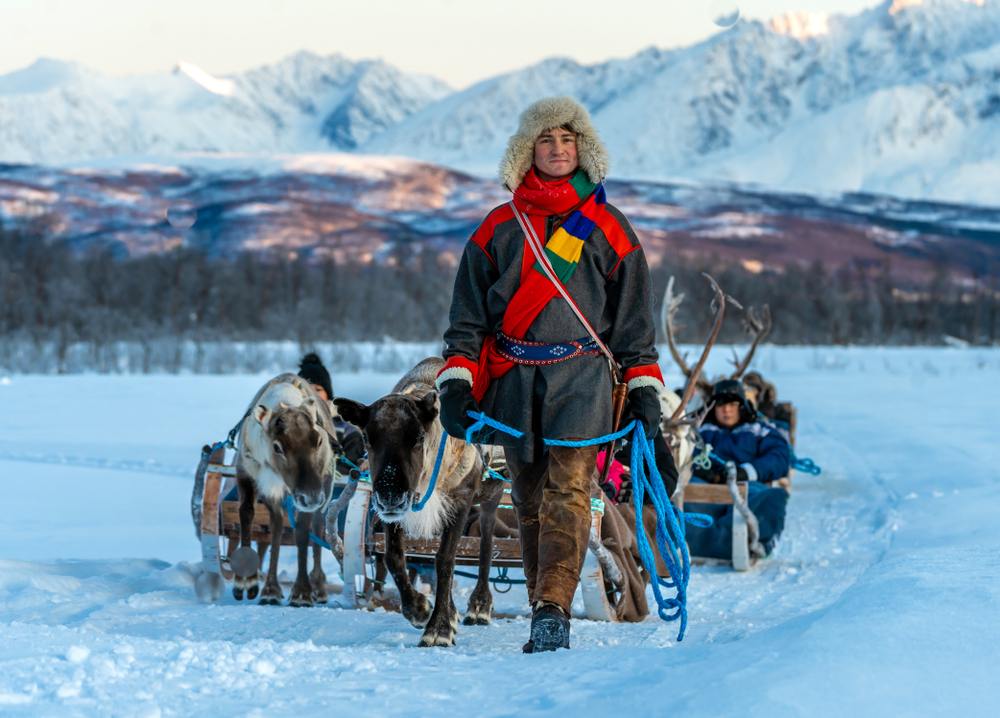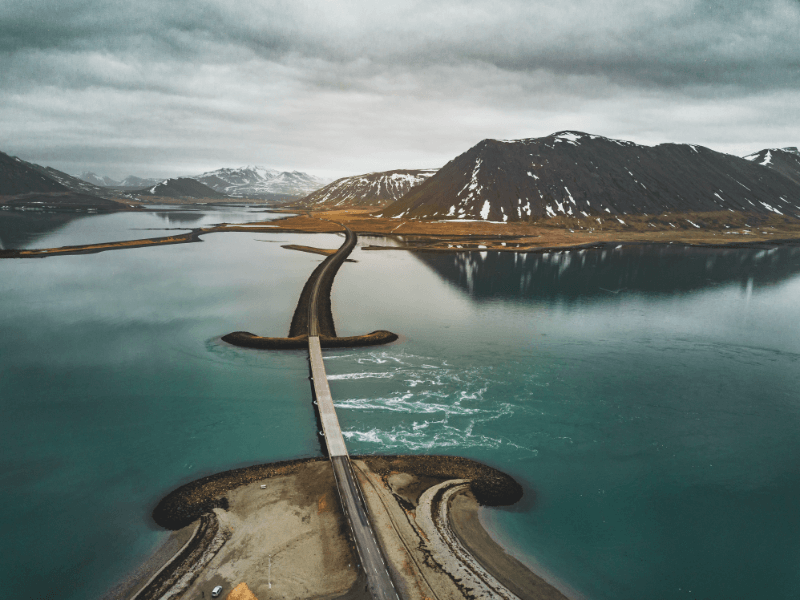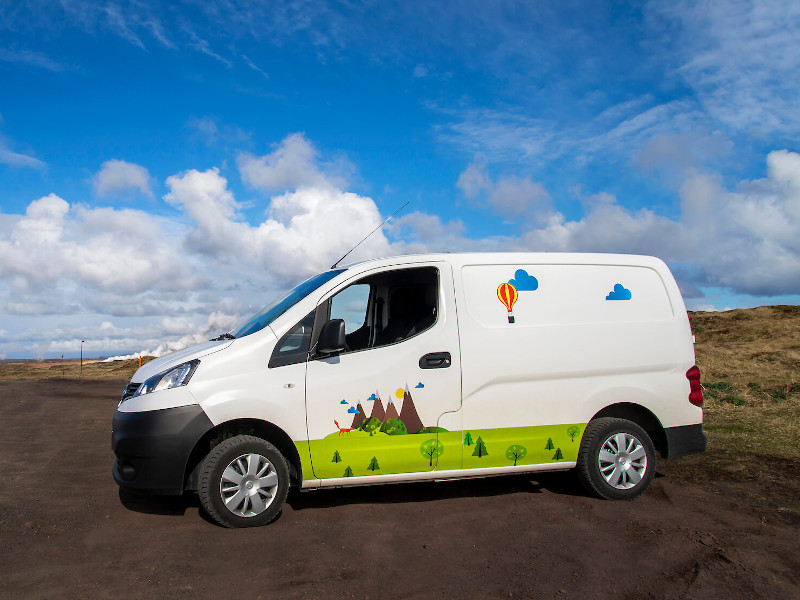Ever wondered what is Norse mythology and why it still captivates us today? You're in the right place! Norse mythology isn't just ancient Viking tales; it's a treasure trove of gods, supernatural beings, and epic sagas that shaped Scandinavian culture.
From Odin's wisdom to Thor's mighty hammer (yes, the one from Marvel), these myths still influence modern pop culture and literature. But that's just the start. Stick around, or you might miss out on incredible facts, like how Norse gods gave us the names for the days of the week. Curious yet? You should be!
What Is The Origin Of Norse Mythology?
Norse mythology, at its core, originates from the pagan beliefs of the North Germanic peoples during the Viking Age (793–1066 AD). So, what is Norse mythology actually all about? It's the collection of mythological stories, shared orally through poetry, about gods like Odin, Thor, and Freya.
These stories were passed down for centuries and were finally recorded in texts like the Poetic Edda and Prose Edda between the 11th and 18th centuries. These myths weren't just stories; they reflected the Vikings' worldview, blending spirituality with everyday life, from warfare to farming.
Influences from Celtic and Slavic cultures shaped Norse mythology through trade and exploration, making it a diverse system of beliefs. Even today, its legacy thrives in Scandinavian culture, and modern movements like Ásatrú aim to revive this ancient Norse religion.
The Nine Worlds and Yggdrasil in Norse Cosmology
Norse cosmology, a cornerstone of Viking mythology, revolves around the concept of Nine Worlds interconnected by Yggdrasil, the World Tree. At its core, Yggdrasil is an immense ash tree that acts as a cosmic axis, its branches reaching into the heavens and its roots extending into various realms.
Each of the Nine Worlds plays a distinct role in the Norse belief system. Asgard, for instance, is the home of the gods, while Midgard is our human realm. Hel, the underworld, completes this cosmic triad.
The well-being of Yggdrasil itself reflects the stability of the entire universe. Guarding this cosmic tree are the Norns, three powerful female figures who control fate and destiny. When Yggdrasil suffers, it's not just a bad day for a tree – it's a sign of impending doom.

Days of the Week Influenced By Norse Mythology
In Norwegian mythology and other Germanic traditions, the days of the week are heavily influenced by ancient gods. Originally named after Roman deities, days like Tuesday through Friday were later replaced by Germanic equivalents in English. Here's how the names evolved:
Tuesday (Tirsdag): Named after Tyr, the god of war and justice
Wednesday (Onsdag): Named after Odin, the main god of wisdom and war
Thursday (Torsdag): Named after Thor, the thunder god
Friday (Fredag): Named after Frigg (or Freyja), goddess of love and fertility
Saturday (Lørdag): Originally Saturn's day, or ‘washing day’ in Scandinavia
Sunday (Søndag): Named after the Sun
Monday (Mandag): Named after the Moon
Supernatural Beings and Norse Gods in Mythology
Norse mythology is a captivating collection of gods and supernatural beings that played a central role in the lives of the Vikings. These deities and creatures were not only powerful but also deeply intertwined with the fate of the world.
Major Norse Gods
Odin: The Allfather and leader of the Aesir, Odin is associated with wisdom, war, and poetry. He sacrificed an eye for knowledge and is often accompanied by his ravens, Huginn and Muninn, who keep him informed about the Nine Worlds.
Thor: Thor, the thunder god, wields the hammer Mjölnir and is known for his strength and protection of humanity. He battles giants and defends the gods against chaos.
Loki: The trickster god, Loki, is known for his cunning and unpredictable nature. He is the father of many monstrous beings, including Fenrir and Jörmungandr, and frequently causes trouble for the gods.
Freyja: A fertility goddess associated with fertility and agriculture. Freyja is also a member of the Vanir, a group of gods who bring prosperity and bounty.

Supernatural Beings
Valkyries: These warrior maidens serve Odin, selecting who will die or survive in battle. They also guide the fallen warriors to Valhalla.
Fenrir: Fenrir is Loki's son, a monstrous wolf prophesied to bring chaos at the end of the days.
Jörmungandr: A sea-serpent coiled around the world, representing the ever-present threat of destruction.
Ratatoskr: A squirrel that runs through the branches of the world tree of Yggdrasil, spreading gossip between its creatures.
The Æsir, Vanir, and Giants: In Norse legend, the Aesir (Æsir in Scandanavian) and Vanir are two clans of gods, often at odds with the Jötnar (giants). Interestingly, the Aesir are descendants of the Jötnar and frequently intermarry with them. Giants come in two forms: frost giants and fire giants, each playing a vital role in the balance and chaos of the universe.
Viking Mythology in Popular Culture - From Famous TV Series to Hollywood Movies
Viking mythology continues to captivate modern audiences, influencing everything from blockbuster movies to binge-worthy TV series. Let's explore how these ancient tales have been reimagined in two popular franchises.
Ragnarök - The Epic End of the Norse World
Ragnarök is a key concept in understanding what is Norse mythology, and represents the apocalyptic finale of the Norse cosmos. This 'Twilight of the Gods' isn't just any doomsday scenario – it's a series of epic battles that would make modern blockbusters look like child's play.
The death of Baldr, the god of light, kicks off this cosmic catastrophe. Then Loki, the trickster god, breaks free and leads the charge against the gods. What follows next is a divine battle royale:
Odin faces off against the monstrous wolf Fenrir.
Thor clashes with the world-encircling Midgard serpent.
Freyr battles the fire giant Surtr.
Heimdall and Loki engage in mutual destruction.
But Ragnarök isn't just about destruction – it reflects the Viking belief in cycles of renewal. This concept has found new life in modern adaptations, like the Netflix series' Ragnarok,' showing how these ancient tales continue to resonate in our culture.

Netflix's Vikings Valhalla - Bringing Norse Legends to Life
Vikings Valhalla, the hit historical drama series, offers a gritty, realistic take on Norse mythology and Viking culture. While not strictly mythological, the show weaves elements of Norse beliefs into its historical narrative. It follows the legendary Norse hero Ragnar Lothbrok and his descendants, blending historical events with mythological elements.
The series heavily features the concept of fate, or 'wyrd,' central to Norse mythology. Characters often consult seers and interpret omens, reflecting the Vikings' belief in prophecy. Epic battles, both historical and legendary, punctuate the series, echoing the grand conflicts of Norse myths.
Marvel's Thor - Norse Gods in the Modern World
Marvel's Thor franchise brings Norse mythology into the superhero genre, reimagining gods as extraterrestrial beings with advanced technology. The series follows Thor, the Norse god of thunder, as he protects both Asgard and Earth. Thor, played by Chris Hemsworth, has been featured in:
'Thor' (2011)
'The Avengers' (2012)
'Thor: The Dark World' (2013)
'Avengers: Age of Ultron' (2015)
'Thor: Ragnarok' (2017)
'Avengers: Infinity War' (2018)
'Avengers: Endgame' (2019)
'Thor: Love and Thunder' (2022)
While Marvel's interpretation is somewhat of a far-fetched version of the real Thor, it still incorporates key elements of Norse mythology like Ragnarök and Thor's hammer. The films explore themes of worthiness and heroism, adapting Norse concepts to modern sensibilities.
Travel Destinations in Norway to Explore Norwegian Mythology
If you're fascinated by what is Norse mythology all about and would like to dive deeper into its origins, then Norway is a treasure trove of destinations where the ancient Viking stories come alive. Here are some must-visit spots for any Norwegian Viking enthusiast:
Borg Viking Museum (Lofoten Islands)
Step back in time with a visit to Borg, where you'll find the world's longest-reconstructed Viking longhouse. The Borg Viking Museum gives you a glimpse into Viking life, and its exhibitions shed light on Norse mythology and its role in shaping Viking culture.

Midgard Viking Centre (Horten)
At the Midgard Viking Centre, you can explore the world of the gods and warriors through interactive exhibits. Learn about the Norse gods and their stories, as well as Viking customs, crafts, and trade. The center also offers guided tours to nearby historic sites with ties to Norse mythology.
Oseberg Mound (Tønsberg)
Tønsberg, Norway's oldest town, is home to the famous Oseberg Mound, where one of the most significant Viking discoveries was made – the Oseberg ship. This 21.5-meter- (70.5 ft) long ship, dating back to 834 AD, was the grave of an eminent woman, possibly a queen, and was filled with lavish gifts for her journey to the afterlife. Explore the town's rich Viking history, which is closely tied to Scandinavian mythology.
Gudvangen Viking Valley (Njardarheimr)
In this living Viking village, you can experience reenactments of Viking life and hear tales of Norse legend firsthand. It's the perfect place to experience the myths and stories up close, with dedicated actors bringing the gods and creatures to life.
Trolltunga (Near the Town of Odda)
While not directly linked to Norse mythology, Trolltunga (Troll's Tongue) is named after the mythic trolls of Norway and offers breathtaking views. The hike to this iconic rock formation is popular among tourists and provides a connection to the natural landscapes that inspired Norse legends.
What is Norse Mythology and Why It Continues to Fascinate Us
Old Norse mythology is a rich tapestry of legends and beliefs that continues to captivate our imagination centuries later. These ancient tales offer more than just entertainment; they provide deep insights into human nature, life, and death that still resonate today.
The enduring appeal of what is Norse mythology lies in its timeless themes of courage, wisdom, and the eternal struggle against fate. To truly experience the essence of Norse mythology, rent a campervan in Norway and become the master of your own saga, exploring the landscapes that inspired these legendary tales.



 By
By 






